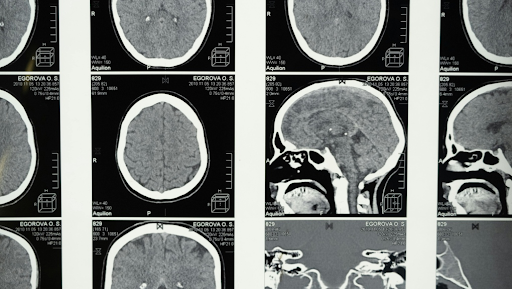
A series of brain scans are seen in this undated file image. CTV NEWS
A unique Canadian research initiative is aiming for a significant breakthrough in tackling a brain disorder believed to stem from repetitive head injuries, typically detectable only posthumously.
At Toronto’s Centre for Addiction and Mental Health (CAMH), Scientific Director Neil Vasdev expresses optimism about the potential of his team's work to diagnose chronic traumatic encephalopathy (CTE) while individuals are still alive. Vasdev emphasizes the transformative impact such early detection could have on halting the progression of the disease, offering hope to countless individuals globally.
CTE, previously predominantly associated with deceased athletes like football and hockey players, as well as military veterans, has been linked to the accumulation of a specific protein, tau, around blood vessels in those with a history of significant repetitive head impacts (RHI). This protein variant bears resemblance to the tau seen in Alzheimer’s patients and can lead to severe cognitive impairments, including depression and suicidal tendencies.
Presently, diagnosing CTE in living patients remains an unmet challenge. However, Vasdev and his Canadian research team at CAMH are endeavoring to change this narrative. Their approach involves utilizing a radioactive tracer, administered intravenously, which binds to the target protein. Through positron emission tomography (PET) imaging, doctors can visualize these proteins in the brain, providing insights into the disease's presence.
The team's optimism centers on a novel radio-pharmaceutical designed to detect CTE-specific tau protein, with upcoming human trials in Canada set to evaluate its efficacy. Samantha Bureau, International Research Director at the Concussion Legacy Foundation, underscores the significance of such advancements, particularly for individuals grappling with suspected CTE and the uncertainties surrounding their condition's origin.
Success in this study could herald improved treatment prospects, offering avenues for altering the disease's trajectory. Vasdev's personal connection to the cause, rooted in his mother's dedication as a Canadian military veteran and her commitment to CTE research, fuels his passion for the project. He envisions this research not only benefiting veterans but also diverse communities across Canada.
In Vasdev's view, the ability to diagnose CTE during life holds the promise of proactive intervention strategies, treatment modalities, and ultimately, disease prevention. This endeavor represents not just a scientific pursuit but a deeply personal mission with the potential to reshape how society addresses the impact of head injuries on cognitive health.















